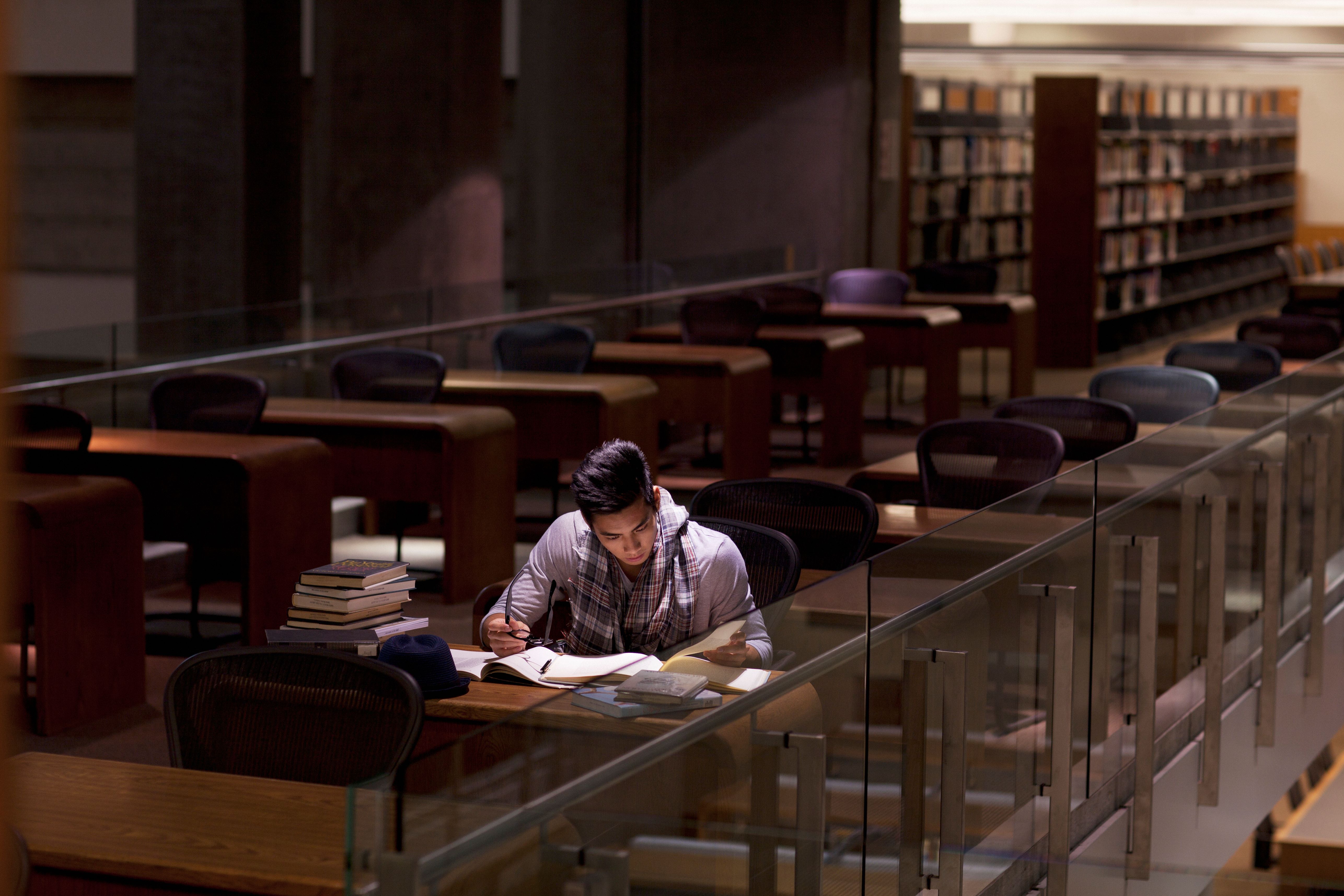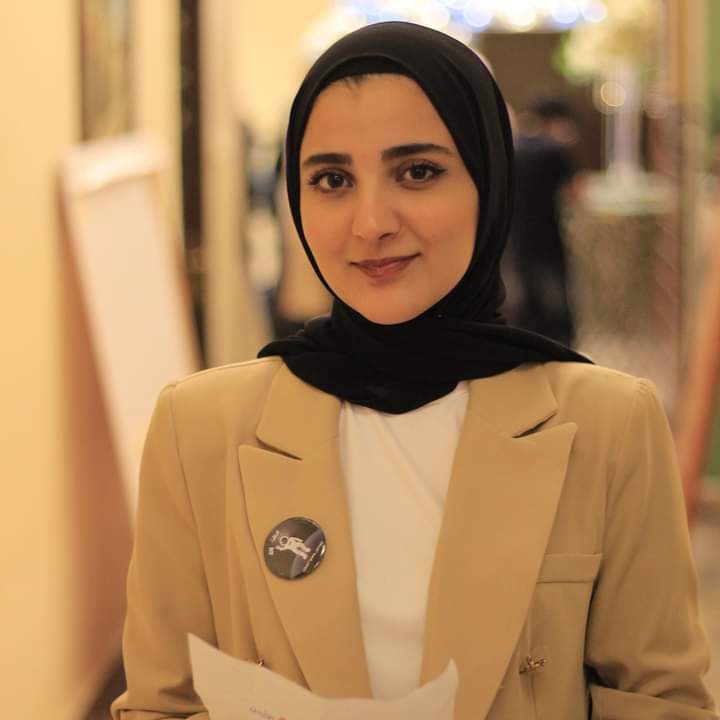• مقال فائز بمنحة حضور منتدى كليات الصحافة في العالم العربي (أكتوبر 2023)
واقع تدريس الصحافة ليس سوى انعكاس لواقع العالم العربيّ نفسه، حيث يخشى الأستاذ قول الكلمة التي قد تعبّر عن واقعه لكنها تزعج حاكمه، فيسكت عنها ويسكت كل شيء معه، يسكت الحلم والحق، التأثير والسلطة، الصوت وصداه، لتتجرد كل الأشياء من معانيها واستحقاقها وأصالتها، فتصبح كلّها عاديّة.
إنّ إشكاليّة الوضع الراهن في ميدان الصحافة تتعدى القضايا التقنية أو المادية، بقدر ما تتجلى في جوهر تصوّر الطلبة والأساتذة لمفهوم الصحافة الذي يفتقر لتجسيدها كسلطة مراقبة ومحاسبة في ظلّ مناخ الحريات المقيّد، مما يفقر تجارب صحفيّة محليّة قد تكون مثالًا يحتذى به أو بمنزلة قدوة للطلبة.
أول سبيل لفهم موطن الخلل هو التعمّق في المفاهيم التي تشكّل سلوكنا نحو أي قضية. أقصد أن واقع تدريس الصحافة في العالم العربيّ هو انعكاس لأفكار الأساتذة الذين يدرسونها، ومدى إيمانهم بجدوى عملية التدريس، فإذا كان الأستاذ غير ملم بأساسيات العمل الصحفي لافتقاره إلى الخبرة العملية فماذا ستكون نوعيّة الطلبة الذين سينتجهم هذا الواقع؟
إنّ إشكاليّة الوضع الراهن في ميدان الصحافة تتعدى القضايا التقنية أو المادية، بقدر ما تتجلى في جوهر تصوّر الطلبة والأساتذة لمفهوم الصحافة الذي يفتقر لتجسيدها كسلطة مراقبة ومحاسبة في ظلّ مناخ الحريات المقيّد.
إنّ تحديث هذا الواقع أو الارتقاء به لن يكون بتقديم اقتراح منّي حول تزويد الجامعات العربية التي تدرّس الصحافة بأحدث الأجهزة والأدوات - مع عدم إنكاري لحاجة جامعات كثيرة لذلك - للارتقاء بمستوى الخدمات ومن ثم الارتقاء بمستوى عملية التدريس، لأن هذا لن يحصل.
حاجتنا الأساسية اليوم صناعة الثقافة والوعي بفكرة أن تكون صحفيا، وبفكرة أن تكون أستاذ صحافة؛ لأن السلطة ذات تأثير، والإنسان عظيم، والأدوات المتطورة بإمكانها أن توجد، لكن الفكر والثقافة هما مصنع النهضة والارتقاء دومًا.
ومع كامل إيماني بكلّ كلمة وصفت بها واقع تدريس الصحافة، إلا أنني لا أنكر أنني صقلت معارفي على يد قامات وأساتذة فضلاء، وأن تجربتي قدمت لي الكثير، فإني أرى أن المفقود في التعليم هو الحافز لتعلّم الكثير. أقصد أنني حين أدرك أن المنهاج لا يسدّ نهمي للتعلم، سيزيدني هذا إصرارًا للبحث في مصادر أخرى، وإذا رأيت أن أستاذي ليس كفئا - دون تعميم - يدفعني ذلك للبحث عن قدوة في مكان آخر يشبع هذا النقص، وإذا شعرت بأن من حولي لا يولون القضايا المهمة التي تؤثر في واقعنا حقها أتجه بكلّ ما أوتيت من قوة نحو هذه الموضوعات؛ لذا فإن تجربتي ثرية، وأصرّ على أن الإشكالية الأساسية ليست مادية ولا تتجسد في الأدوات أو التقنيات لأنها إن وجدت دون عقول قادرة على الإبداع تعي أهمية ما تقوم به فهي بلا قيمة.
حين أدرك أن المنهاج لا يسدّ نهمي للتعلم، سيزيدني هذا إصرارًا للبحث في مصادر أخرى، وإذا رأيت أن أستاذي ليس كفئا - دون تعميم - يدفعني ذلك للبحث عن قدوة في مكان آخر يشبع هذا النقص.
في ذات الوقت، لا أستطيع أن أعلق أمالي على قدرة الطالب في تحدي الواقع كي يحظى بتجربة ثرية دون إيجاد بيئة محفزة ترتقي بمستوى العملية التدريسية. إنها متطلبات أخرى أعكس فيها حاجتي كطالبة صحافة، بدايةً المطالبة بحق امتلاك طالب الصحافة امتيازات وحقوقا تجعله قادرًا على ممارسة عمله بحرية وأن يضمن حقه في التعبير، فكلما اتسعت دائرة الحرية، زادت الضمانات الفردية والجماعية لباقي الحقوق. إن الحرية أحد أركان حقوق الإنسان الأساسية ولا تقبل التجزئة، وتزداد أهميتها بكونها وسيلة مضادة للسلطوية وأساسا للحكم الصالح.
ويتجسد انعكاس واقع الحريات في الدول العربية في عدم استجابة الكثير من الدول لمساعي ترسيخ حرية التعبير والحق في الولوج إلى المعلومات. وفي السنوات الأخيرة بدأت بعض الدول بترجمة التزاماتها الدولية تجاه هذا الحق بإقرار قوانين الحصول على المعلومة - حسب تقرير صادر عن الاتحاد الدولي للصحفيين، لكن السؤال الأهم هل تنسجم التشريعات العربية المقرّة مع المعايير الدولية التي تتعلق بحق الحصول على المعلومات؟ وما مدى اتفاق الممارسة العملية الصحفية مع روح وجوهر هذه القوانين؟
حسب دراسة أجراها الاتحاد الدولي للصحفيين فإن معظم الدول العربية لا تراعي في تشريعاتها الخاصة مواءمة قانون الحق في الحصول على المعلومة مع المعايير الدولية. على سبيل المثال إن جميع الدول العربية باستثناء اليمن لا تميّز الصحفيين بوجود مسار سريع الاستجابة لطلباتهم ضمن القانون، ولا تكفل حماية المواطنين في حال إفصاحهم عن معلومات يقع الكشف عنها في إطار المصلحة العامة؛ مما يسهم في إعاقة المساعي نحو الوصول إلى سلطة رقابة ومحاسبة، بالإضافة الى عدم العمل بمبدأ الإفصاح الاستباقي الذي يلزم الجهات والمؤسسات المختلفة بالكشف التلقائي عن المعلومات في الأردن والسودان. يؤدي ذلك إلى تشكيل فراغ تشريعي وإخلال بمبدأ مهم من مبادئ الحق في الحصول على المعلومة وبالتالي يؤثر على حق الجمهور بالمعرفة.
كيف يؤثر واقع الحريات في العالم العربي على العملية التدريسية؟
إنّ وجود هذه التقييدات تجعل أطراف العملية التدريسيّة تفتقد للضمانات الضرورية لممارسة عملها دون خوف من التعرّض للعقوبات والترهيب والملاحقة سواء الأستاذ أو الطالب وبالتالي الحيلولة دون القدرة على تجسيد مفهوم الصحافة كسلطة رابعة. فإذا حظي الأستاذ الجامعي بالحق في ممارسة حريته في البحث العلمي والنشر، واختيار المقاييس والخطط الدراسية وطرق التدريس الملائمة دون وجود قوانين تؤطر تجربته وتسيّسها سيكون حتمًا قادرًا على التغيير، والعمل على بلورة تعريف الصحفي الحقيقي القادر على المراقبة والمحاسبة ونقل هذه القيم للطلبة.
ووفقًا لتقرير صادر عن مؤسسة "فريدوم هاوس"، فإن حالة الحريات في العالم العربي تدهورت بشكل كبير خلال السنوات الماضية، حيث انخفض مؤشر حرية التعبير. وفي ظّل هذا التدهور، يصبح من الصعب على الجامعات تحقيق أهدافها التعليمية بشكل كامل.
وبناءً على ذلك، علينا أن نعي جيدًا أهمية تجسيد الحرية الأكاديمية عمليًا، فهي وسيلة من وسائل تنمية العملية التعليمية بمكوناتها الثلاث: الأساتذة والبرامج والطلبة من خلال توفير تكافؤ الفرص للنمو المعرفي وتطويرها، وتوفير بيئة تشجع على الاستفادة من إنجازات العلم والتراث الحضاري والإنساني، وإثراء المناهج الجامعية للارتقاء بالعملية التدريسية.
وهنا نصل للسؤال الأهم كيف سيكون طالب الصحافة قادرا على توظيف هذه الحقوق لخدمة مفهوم السلطة الرابعة وإكسابها صفة الرقابة والمساءلة، الذي هو فحوى ما نتطلع إليه..
العمل الميداني وصقل مهارات طالب الصحافة
إنّ ما يميّز الصحفي الحقيقي هو قدرته على تسخير الحقوق التي يتمتع بها لتحقيق هدفه الأسمى المتمثل بالبحث عن الحقيقة. ومن هنا فإن صقل مهاراته وتجربته ليُحدث فارقًا يميّزه عن باقي الأشخاص الذين سيحظون بهذه الحريات من الأمور التي يجب أن نضعها على سلم الأولويات عند التفكير في الارتقاء بواقع تدريس الصحافة في العالم العربي. وذلك عن طريق التركيز على العمل الميداني وإعطائه الحصة الأكبر عند تدريس هذا التخصص، فالدراسة الجامعية في أقسام وكليات الإعلام في الجامعات العربية تغلب عليها الدراسة النظرية، فيما لا تتجاوز نسبة الأعمال التطبيقية 30% في أحسن الأحوال. ونحن اليوم بحاجة لأن نعي أهمية التجربة العملية في الميدان وما تقدمه من مهارات تجعل طالب الصحافة على اتصال قوي بواقعه ومشاكله وتحدياته، ومن ثم تحفزه للسعي نحو تحسين هذا الواقع عن طريق ممارسة عمله كصحفي قادر على المراقبة والمحاسبة.
وفي هذا الصدد يقول أستاذ الإعلام في الجامعة اللبنانية، راغب جابر، الذي مارس العمل الصحفي لسنوات طويلة، إن "الصحفي المكتبي لا يستطيع أن يصنع حكاية من الحدث، بينما المراسل الميداني يمكنه فعل ذلك".
تحديث المناهج الدراسية
إنّ العمل على تحديث المناهج الدراسية هو انعكاس لإيماننا بأهمية سلطة الصحافة والعمل على ضمان استمرارية تأثيرها، ولن يتحقق ذلك إلا عن طريق مواكبة تحولات العصر الرقمية. وهنا علينا أن ننظر للمواكبة كوسيلة لخدمة نوعيّة الإعلام الذي نود إنتاجه وضمان وصوله لأكبر شريحة من الناس؛ لأننا إذا نظرنا لها كهدف فإنه سيتحقق بمجرد توفر الموارد.
كما أنه من الضروري العمل على إثراء المناهج بإضافة علمية جديدة، ويمكن تحقيق ذلك من وجهة نظري من خلال إضافة مساقات تثري مهارات الطالب بالحوار، كمساق المناظرات. فعند حديثي عن المهارات لا أقصد فقط التصوير أو المونتاج أو التحرير بل أيضًا تنمية قدرة الطالب على النقاش المنطقي المدعّم بالحجج والبراهين، فهو أعظم ما قد يمتلكه طالب الصحافة، أو إضافة مساقات تثري تجربة الطالب بانخراطه في مجتمعه، كمساق " تجارب اجتماعية" الغرض منها خوض الطالب لتجارب اجتماعية مختلفة كممارسة وظيفة معينة ورصد المواقف التي تعرض لها أثناء عمله، لكشف المشكلات أو التجاوزات التي يتعرض لها العامل في هذا المجال وتوثيق نتائجه لتعزيز صلة الطالب بواقعه وممارسته ولو بشكل بسيط دور السلطة الرابعة.
إذا حظي الأستاذ الجامعي بالحق في ممارسة حريته في البحث العلمي والنشر، واختيار المقاييس والخطط الدراسية وطرق التدريس الملائمة دون وجود قوانين تؤطر تجربته أوتسيّسها سيكون حتمًا قادرًا على التغيير.
كما ينبغي التركيز على تخصيص مساقات وتدريبات تعزز معرفة الطالب بالحقوق والواجبات بشكل عملي ومبتكر على يد محامين وأساتذة متخصصين كي يصبح الطالب قادرا على رصد التجاوزات التي تحدث في المجتمع، وكي يمتلك نظرة الصحفي الناقد لأي ظلم يقع عليه أو في محيطه. ومع هذا كله لا بد من تقديم الدعم المادي من الجامعة لمشاريع الطلبة، مع توفير معدات جيدة، وأستوديوهات مؤهلة تتماشى مع احتياجات الطالب والتحول الرقمي في مجتمعاتنا.
وبالحديث عن الارتقاء بواقع تدريس الصحافة في العالم العربي ينبغي توحيد كلّ الجهود لخدمة هذا الهدف، بتشكيل لجان في كليات الإعلام تكون على اتصال مع سوق العمل تزكي الطلبة المتميزين وتتابعهم، و تعزز التعاون الدولي بين الجامعات والمؤسسات الإعلامية الضخمة لتوحيد الأهداف وتبادل الخبرات والعمل على الارتقاء بواقع تدريس الصحافة مع أهمية تنظيم سلسلة تدريبات لأساتذة ودكاترة الصحافة في كل بلد عربي بإشراف من مؤسسات التدريب لصقل مفاهيمهم ومهاراتهم في هذا التخصص، وكذلك للطلبة.


















![Palestinian journalists attempt to connect to the internet using their phones in Rafah on the southern Gaza Strip. [Said Khatib/AFP]](/sites/default/files/ajr/2025/34962UB-highres-1705225575%20Large.jpeg)





















